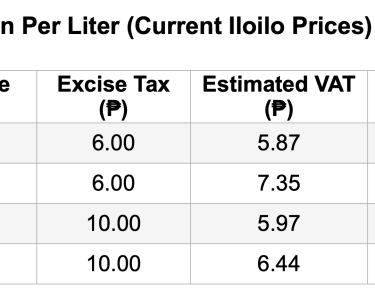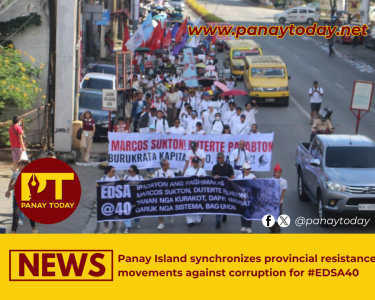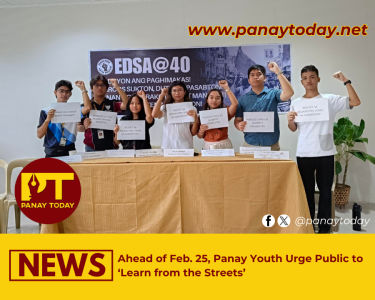By Juliane Judilla
The multisectoral group Bagong Alyansang Makabayan (Bayan)-Panay criticized a recent study by the Institute of Contemporary Economics (ICE), which links recent minimum wage increases to a slowdown in regional economic growth.
The ICE report noted that wage earners in Western Visayas have fared better than their counterparts in many other parts of the country. It pointed out that wage growth in the region has outpaced that of the National Capital Region, where compound annual growth rates ranged between 3.7% and 4.0%.
However, ICE warned that such rapid wage increases may have negative repercussions. The report highlighted the pressure on small and medium enterprises (SMEs), which are now grappling with shrinking profit margins and rising input costs.
“Continued price pressures from increasing cost of business expenses could further impact economic growth and affect employment levels,” the report warned.
Bayan-Panay and the United Labor Alliance, which played key roles in the successful implementation of Wage Orders RPVI-25 and RPVI-28 that increased the regional minimum wage from ₱480 to ₱513, rejected the study’s conclusions.
“Workers are not the cause of the economic crisis,” Bayan-Panay said in a statement.
The groups cited official data from the Philippine Statistics Authority (PSA), which showed Western Visayas’ growth slowed from 6.8% in 2023 to 4.3% in 2024, with agriculture suffering the sharpest contraction—−7.3% in 2024 after −6.2% in 2023. They argued that this slowdown cannot be blamed on the minimal wage increase but on long-standing issues in the region.
“The real causes are the same old problems. Landlords still dominate agriculture while farmers remain landless and in debt. Traders dictate farmgate prices, leaving peasants with barely enough to survive. Import liberalization floods markets with cheap rice, sugar, and vegetables, killing local production. And profit hoarding by corporations, local elites, and foreign monopolies ensures small producers are left with crumbs,” the group said.
“They want us to believe that the problem is our demand for a decent life, not the system that bleeds both workers and farmers dry,” they added.
The groups emphasized that even with the latest wage hikes, workers’ earnings remain far below the cost of living. According to research group IBON Foundation, the family living wage for a family of five is estimated at ₱1,200–₱1,300 per day—more than double the current minimum wage in the region.
Between 2012 and 2022, labor productivity in the country increased by nearly 29%, while real wages rose only about 21%. This, the groups argue, shows that the bulk of the wealth generated continues to go to capitalists rather than workers.
“To call the latest wage hikes ‘aggressive’ or ‘excessive’ is an insult when workers continue to subsidize the profits of the elite through cheap labor. How can ₱480–₱513 a day be called ‘too much,’ when big landlords and corporations rake in millions and government officials waste billions in pork barrel funds?” Bayan asked.
The group added that despite Western Visayas contributing ₱641.76 billion to the national economy in 2024—ranking 8th among all regions—nearly 1 in 5 families in the region remain poor.
“Who benefits from this wealth if not the workers and peasants who created it?”
Bayan-Panay added that instead of limiting wage hikes to please investors, the government should guarantee a living wage that reflects the actual cost of living. It should also put a stop to import liberalization policies that continue to destroy farmers’ livelihoods and undermine local production.
“Wages are not a burden. They are the rightful share of the wealth produced by labor. In fact, every peso earned by workers goes back into the local economy — into food, transport, housing, and schooling. What truly drags down our economy is not wages, but monopoly control of land and industries, corruption and pork barrel politics, dependence on foreign loans and imports, and the siphoning of profits by big business out of our communities,” they added.
The group further called for genuine support for small producers, vendors, and micro, small, and medium enterprises (MSMEs) through subsidies, access to affordable credit, tax relief, and protection from unfair competition posed by large corporations and imported goods. It also stressed the need for genuine land reform and national industrialization so that the Philippine economy can stand on its own and serve the needs of the majority./PT





